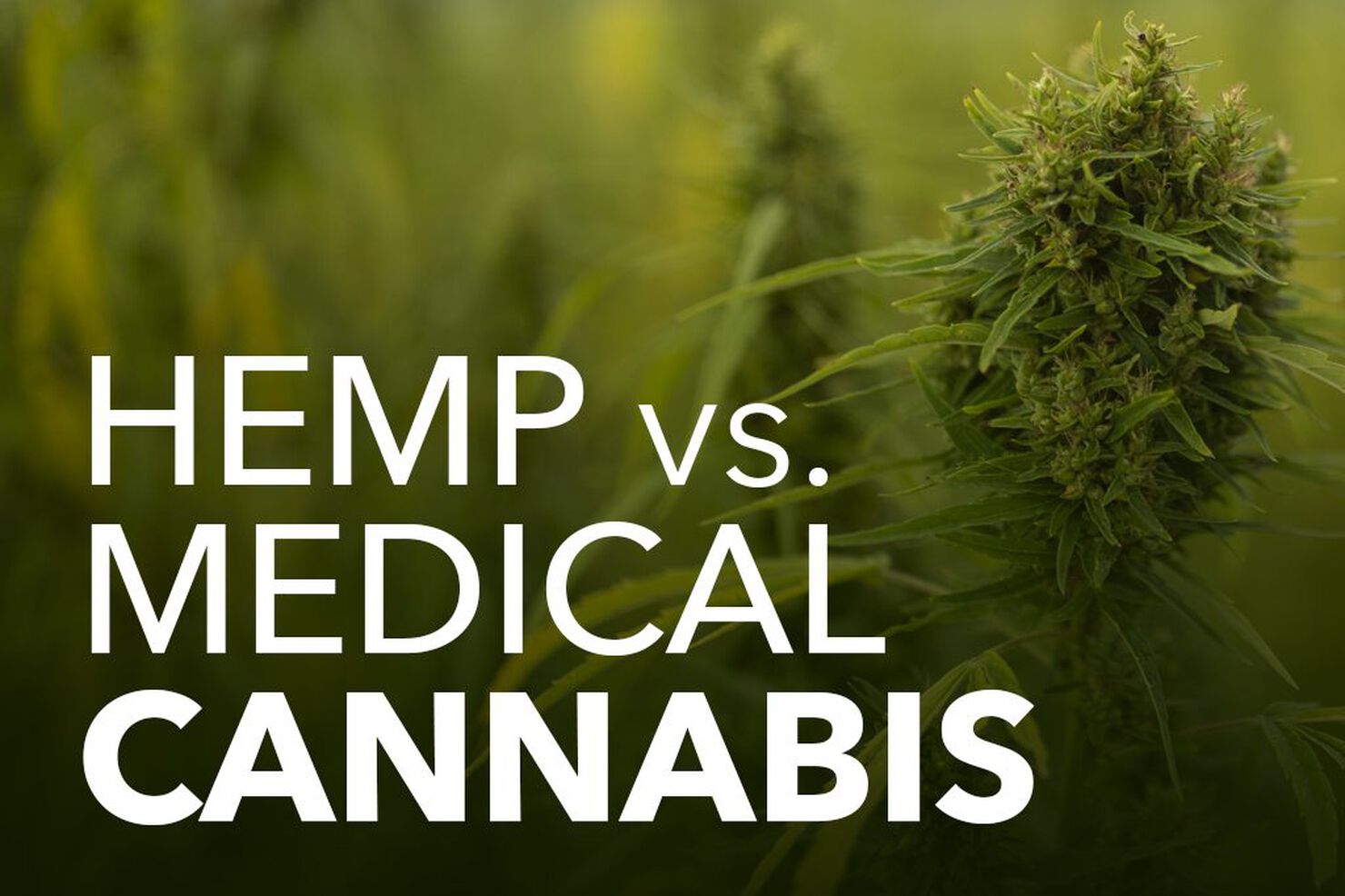Hemp vs. Weed: What Is the Difference Between Hemp & Medical Cannabis?
Jun 1, 2021

Cannabis has been used to enhance human health for thousands of years. Today, a growing number of states within the United States allow the use of cannabis for medical reasons, with 32 states currently allowing home cultivation of cannabis, purchase of cannabis from dispensaries, or both.
Medical cannabis, sometimes referred to as marijuana, is recommended by doctors to their patients. A growing body of research going back over a century supports the use of cannabis for medical purposes. However, despite the huge number of research papers on cannabis and the endocannabinoid system, the national government still considers cannabis to be illegal. The legality of medical cannabis is currently decided by each state for their own residents and leads to a patchwork of laws and regulations.
What is the Legal Status of Hemp and Cannabis in the United States?
Prior to 2014, while it was legal to import, market, and purchase agricultural hemp plants and products, hemp could not be grown in the United States. The 2014 Farm Bill allowed states to create their own research programs for hemp cultivation for the first time in decades and re-opened the door to homegrown hemp. The 2018 Farm Bill went even farther and definitively removed agricultural hemp (and its byproducts) from the U.S. list of controlled substances. . These hemp cultivation bills paved the way for the success of the agricultural hemp industry and CBD industry as we know it today.
The Farm Bill introduced a clear legal definition to differentiate hemp from medical cannabis. A hemp plant is a cannabis plant that contains less than 0.3% THC by dry weight. A medical cannabis plant is one that contains greater than 0.3% THC by dry weight.
In the case of medical and recreational cannabis, while some states outlaw cannabis completely, others have made it legal for use by certain types of patients for medical use or have an age limit for recreational use. Each state has its own approach to qualifications for cannabis use and specific information on state medical marijuana laws can be found online.
Medical cannabis is sometimes confused with extracts made from hemp, often called CBD oil, since both have a variety of benefits for improving overall wellbeing. Both contain compounds called cannabinoids, the most well-known of which are cannabidiol (CBD) and tetrahydrocannabinol (THC). THC is responsible for the ‘high’ that cannabis is known for, while CBD is considered to be non-intoxicating. Since CBD will not get you high, it can be a great daily supplement to support your overall health and wellbeing.
Because hemp contains beneficial CBD without being accompanied by the intoxicating effects of THC, it is available to a much wider variety of consumers than medical and recreational cannabis. This makes hemp popular as both a food and as a health or beauty product. Hemp and CBD oil products, like hemp balm, are widely available throughout the United States, and millions use them every day for their health benefits.
How to Incorporate CBD Oil Into Your Daily Routine
Today, there are many ways you can incorporate this CBD dietary supplement into your daily life. Some of the most common CBD oil products include gummies, CBD oil tinctures, capsules, and CBD skincare products.
If you are looking for the best CBD product to use on a daily basis, we can help. At PlusCBD Oil, we offer a wide variety of hemp CBD products that are effective and easy to use. Our full spectrum CBD oil uses quality ingredients and has been tested by top scientists to ensure that our customers are getting the very best products. Find the perfect hemp product for you by browsing our website today.
For more information, check out our video series, Minute with Miles, What is CBD?
 To make this site work properly, we sometimes place small data called cookies on your device and use those for analytical purpose - Team PlusCBD Oil, CV Sciences Inc.
To make this site work properly, we sometimes place small data called cookies on your device and use those for analytical purpose - Team PlusCBD Oil, CV Sciences Inc.